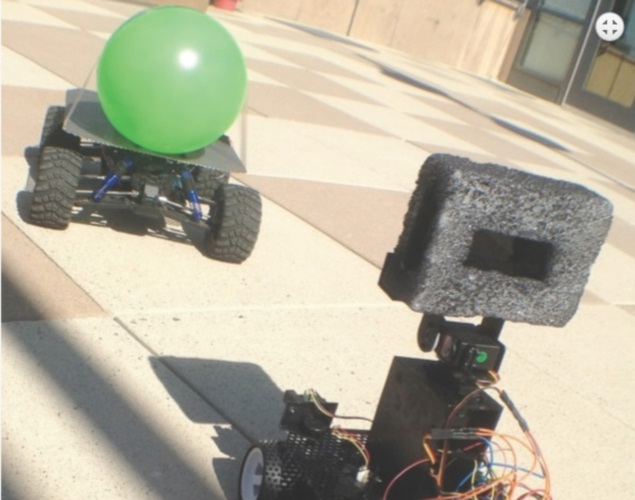- Home
- Science
- Science News
- Researchers Developing a Neurotic Robot That Mimics Humans
Researchers Developing a Neurotic Robot That Mimics Humans

Scientists at University of California are working on a "neurotic" robot that can copy human behaviour.
"We are trying to make the robot brain more like human brain," said lead researcher Jeff Krichmar, a professor of cognitive science at University of California, Irvine.
The key lies in "neurobiological robotics." Here, researchers are looking for unique human or animal abilities that can be copied, turned into software and replicated in order to make robots work better.
Krichmar is experimenting with building neurotic robots that show signs of obsessive-compulsive disorder, just like humans, or are afraid of open spaces.
The team is making a robot act like a mouse in a cage. Krichmar's team used a rodent model and varying levels of dopamine and serotonin the two brain hormones that control pleasure centres and well-being.
"The effects of the chemicals on the rodent are then replicated in the robot's software," Krichmar explained.
"We are doing mathematical models of brain or cognitive system, then putting that in software and it becomes the controller for the robot," Krichmar revealed.
The findings were shared at the "IEEE International Conference on Robotics and Automation" in Hong Kong recently.
Catch the latest from the Consumer Electronics Show on Gadgets 360, at our CES 2026 hub.
- Samsung Galaxy Unpacked 2025
- ChatGPT
- Redmi Note 14 Pro+
- iPhone 16
- Apple Vision Pro
- Oneplus 12
- OnePlus Nord CE 3 Lite 5G
- iPhone 13
- Xiaomi 14 Pro
- Oppo Find N3
- Tecno Spark Go (2023)
- Realme V30
- Best Phones Under 25000
- Samsung Galaxy S24 Series
- Cryptocurrency
- iQoo 12
- Samsung Galaxy S24 Ultra
- Giottus
- Samsung Galaxy Z Flip 5
- Apple 'Scary Fast'
- Housefull 5
- GoPro Hero 12 Black Review
- Invincible Season 2
- JioGlass
- HD Ready TV
- Laptop Under 50000
- Smartwatch Under 10000
- Latest Mobile Phones
- Compare Phones
- OPPO Reno 15 Pro Max
- Honor Win RT
- Honor Win
- Xiaomi 17 Ultra Leica Edition
- Xiaomi 17 Ultra
- Huawei Nova 15
- Huawei Nova 15 Pro
- Huawei Nova 15 Ultra
- Asus ProArt P16
- MacBook Pro 14-inch (M5, 2025)
- OPPO Pad Air 5
- Huawei MatePad 11.5 (2026)
- Xiaomi Watch 5
- Huawei Watch 10th Anniversary Edition
- Acerpure Nitro Z Series 100-inch QLED TV
- Samsung 43 Inch LED Ultra HD (4K) Smart TV (UA43UE81AFULXL)
- Asus ROG Ally
- Nintendo Switch Lite
- Haier 1.6 Ton 5 Star Inverter Split AC (HSU19G-MZAID5BN-INV)
- Haier 1.6 Ton 5 Star Inverter Split AC (HSU19G-MZAIM5BN-INV)












